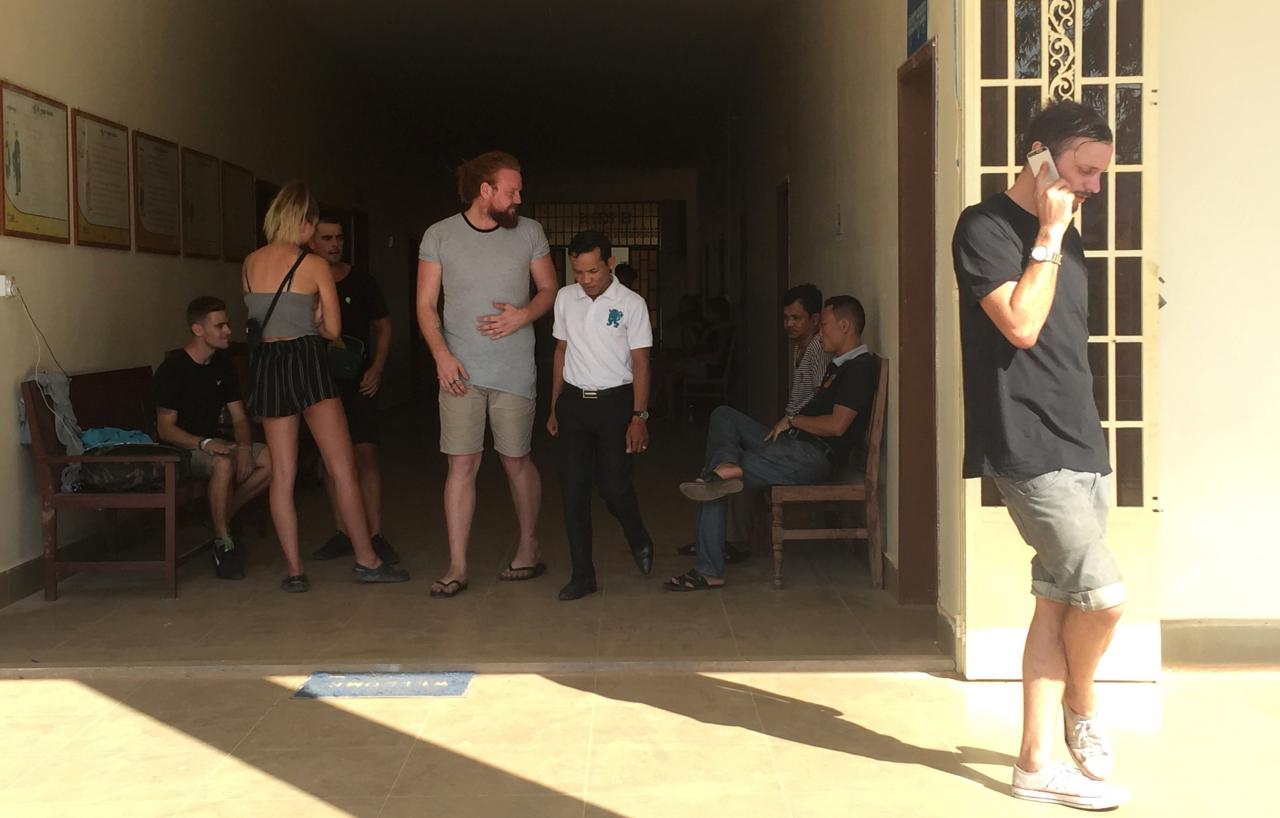Last week saw the arrest of ten tourists, including five Britons, for allegedly producing and displaying “pornographic pictures”, according to a statement published on the National Police website after a police raid in the city of Siem Reap, Cambodia. The Gryphon looks into the future of South East Asian traveller hotspots in light of recent allegations against British tourists in Cambodia.
In spite of the kingdom’s conservative culture, Cambodia, like many of its ASEAN counterparts, has seen the rise of Western tourism come at odds against its long-standing traditional heritage. As Duong Thavry, chief of the Anti-Human Trafficking and Juvenile Protection Department in Siem Reap, told the AFP, “we cracked down on them because they committed activities that are against our culture.” According to the National Police report, seventy-seven tourists were detained and “educated” in proper Cambodian decorum before being released without charge. However, the ten accused organisers are awaiting trial in a court where charges of producing sexually explicit images – equated to making pornography by police and prosecutors alike – carry a sentence of up to one-year imprisonment.

In a short video clip posted of the ten arrested, all with shaved heads, Briton Daniel Jones makes a grovelling apology to his audience, stating that he “respect[s] the culture” and that it was only “one mistake.” With the other members of the accused group simultaneously bowing and apologising in English and Khmer, the final scene painted a very different picture to the lewd images that got them there in the first place.
“The government should implement regulations on local noise pollution and drinking instead of mass arrests like this, before future tourists get put off from coming entirely”
Although geographically considered the gateway to the ancient temples of Angkor Wat, Siem Reap’s proximity to one of country’s most visited locations has led to its popularity as an important backpacker hotspot, creating a boom that has seen a high number of lively bars and clubs springing up in its wake. With flashing neon lights advertising cheap booze and a good time, the city’s ‘Pub Street’, officially Street 8, sits at its centre. With a pint of beer on offer from only 50¢ and cocktails a mere $1.50, there are budget-friendly options for even the thriftiest of travellers.
Worth a total of $5.5billion (28% of GDP) in 2016 and rising, with a country that relies so heavily on tourist visits, such an action as this may prove to act as a deterrent against potential visitors. Speaking to a University of Leeds student who has travelled to Cambodia, she worried about the future of Siem Reap’s rambunctious backpacking-scene if events like this became the norm: “You come to Siem Reap to see Angkor Wat, but end up staying in the city longer because of its great atmosphere. I know that sometimes tourists can push it too far, but there has to be a less extreme approach. The government should implement regulations on local noise pollution and drinking instead of mass arrests like this, before future tourists get put off from coming entirely.”
“With a pint of beer on offer from only 50¢ and cocktails a mere $1.50, there are budget-friendly options for even the thriftiest of travellers”
Siem Reap, like much of Cambodia, depends on tourists who only visit in the few months of high season. With concern over the already slowing growth of Angkor Archaeological Park ticket sales coupled with the near doubling of a one-day entry ticket (from $20 to $37 from 1st February), these fears may not be entirely without merit.
Striking the balance between respecting local culture whilst still having fun is not something only British people find challenging. In 2015, two American sisters (20 and 22) were arrested on charges of taking naked photos inside the sacred temple complex. Only a week earlier, three French men were deported after they pled guilty to the same charge, receiving a suspended six-month sentence and banned from re-entering Cambodia for four years.
However, the future is not all doom and gloom for high-spirited UK tourists. According to the 2015/2016 British Foreign and Commonwealth Office Travel Aware Report, there has been a 10% decrease in the number of foreign arrests and detentions over the last five years. Let’s just hope future tourists are more aware of what is culturally appropriate; what they can and will go to prison for.
Kira Norris
[Images: The Sun, Reuters]

